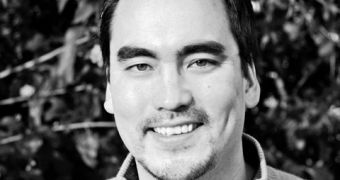In an interview with the NY Times’ Bits blog, Tim Wu, the author of ‘The Master Switch’, reveals he is downright afraid of Apple and the controlling nature of its CEO. He also believes that great leaders, such as Steve Jobs, eventually end their career “by becoming increasingly paranoid and abusive.”
Asked whether he though that technology monopolies surrounding the Internet look different than the past, the Columbia law professor noted that, “The question is whether there is something about the Internet that is fundamentally different, or about these times that is intrinsically more dynamic, that we don’t repeat the past.”
“I know the Internet was designed to resist integration, designed to resist centralized control, and that design defeated firms like AOL and Time Warner. But firms today, like Apple, make it unclear if the Internet is something lasting or just another cycle,” Wu, who coined the term “net neutrality”, believes.
“My gut tells me that a return to 1950s prime time seems outlandish, but I can imagine a future where we have choices but something will be lost.”
The NY Times asked Wu: “Which companies do you fear the most?” Without hesitation, Wu replied saying: “Right now, I’d have to say Apple.”
He also believes the company run by Steve Jobs is an inspiration to Facebook, which also has its eye on Google as a “role model.”
“It is possible that whatever side Facebook takes will have a lot to do with the future of how we communicate,” Wu says.
Explaining what worries him most about Apple, the law professor says that “Steve Jobs has the charisma, vision and instincts of every great information emperor. The man who helped create the personal computer 40 years ago is probably the leading candidate to help exterminate it,” he warns.
“His vision has an undeniable appeal, but he wants too much control,” Wu opines. Needless to point out, this opinion is shared by many people who know a thing or two about Apple as a company.
Talking about CEOs in general, Wu believes “there’s a similarity to power and great nations.”
He makes a summarized profile, saying “The man who starts as the great reformer often ends his career by becoming increasingly paranoid and abusive. There’s a cycle, and the problems usually shows up when the great leader feels his power is threatened, like a political leader.”
These remarks undoubtedly fit Steve Jobs’ personality like a glove. Admittedly, Wu does not specifically note that Apple will die at the hand of its current CEO.
“I think the mogul makes the medium, but it’s also true that once a firm has been in existence long enough, it begins to have a life of its own,” he goes to explain, adding that this applies to the Mac maker.
“But who will take over it from Steve Jobs?”, the paper asks.
Unlike the great majority of researchers dishing out their opinions on the matter, Wu is inclined to believe “it may not matter.”
“I think the mark of Steve Jobs is firmly placed on that firm, that it will continue to be him long after he passes from leadership,” Wu forecasts.
The full interview is available here.

 14 DAY TRIAL //
14 DAY TRIAL //